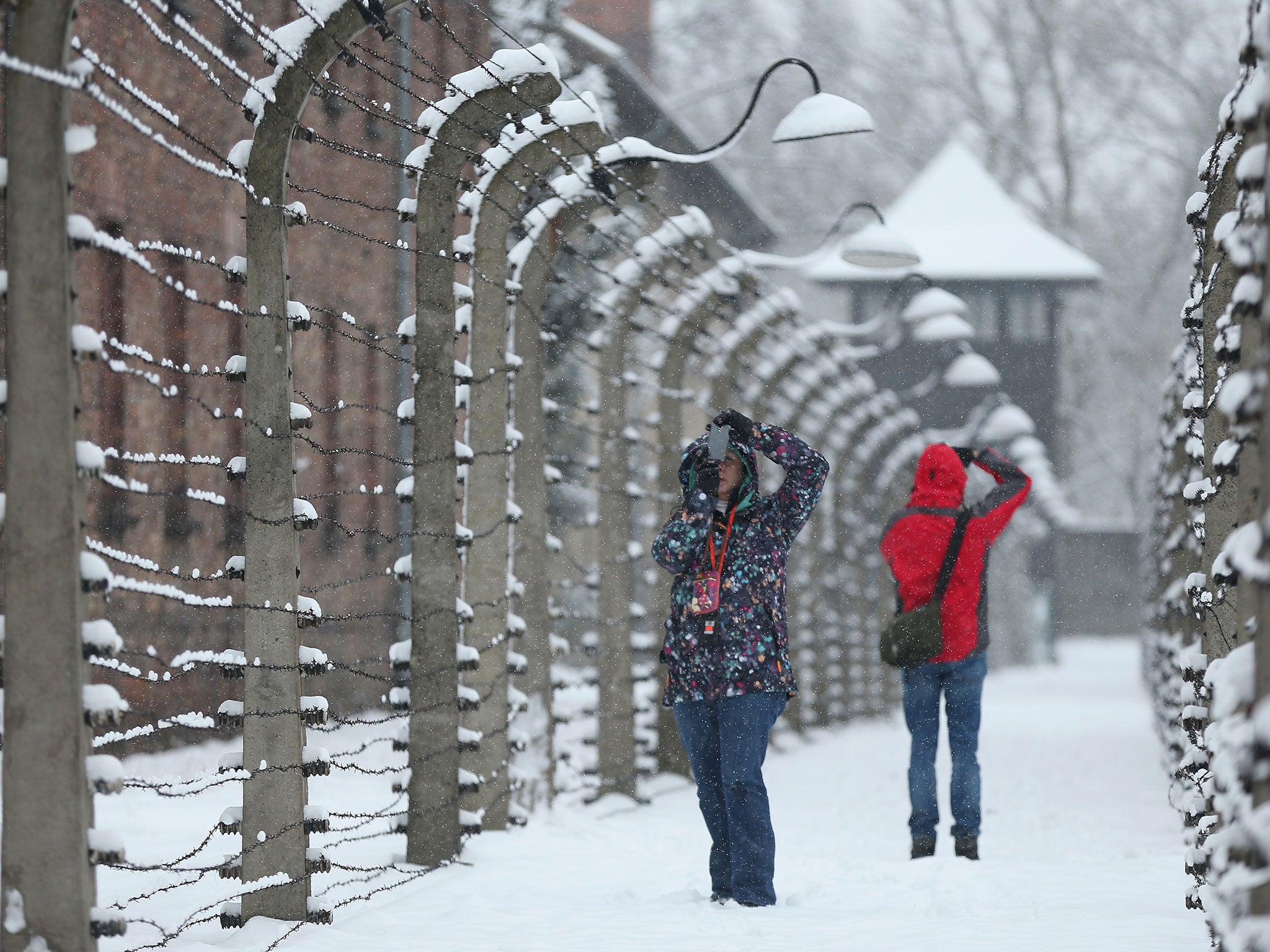Auschwitz survivors remember horror of the camp 70 years on: 'In there you got used to anything'
Josef Paczynski survived his time in Auschwitz because he was personal barber to Rudolf Höss

Jozef Paczynski recalls the “welcome” speech the deputy commandant of Auschwitz gave on his arrival there in 1940, down to the last chilling word. Surrounded by SS guards with machine guns, the then 20-year-old captured Polish soldier stood with other new prisoners at the death camp’s railway station.
“Karl Fritzch was the name of the deputy commander,” Mr Paczynski, now a spry 95, told The Independent. “He said to us: ‘This is not a sanatorium, this is a German concentration camp and you can expect to live three months… there is only one way out of here and that’s through the crematorium chimney’.”
Mr Paczynski spent most of the Second World War in Auschwitz but was spared the chimney, unlike 1.1 million other inmates. He took part in the infamous death march of January 1945, when thousands of emaciated prisoners were forced to march away from the camp to escape the advancing Soviet Red Army.
Tomorrow he will join a dwindling group of Auschwitz survivors for a ceremony on the grounds of the former death camp, marking the 70th anniversary of its liberation by Soviet forces in 1945. The number of survivors continues to dwindle: from 1,500 10 years ago, to just 300 this year.
Mr Paczynski is here today partly because his time at the camp – he was known simply as prisoner 121 – was ordered to work as personal barber to SS commandant, Rudolf Höss.
“The first time I was taken into his villa, I was so afraid that my hands shook and I had spots before my eyes,” he said during an interview at an international youth centre outside the gates of Auschwitz. “He came in and I cut his hair. He didn’t say a word. I must have done a good job because I was called back time and again,” he said.
One day Mr Paczynski climbed on top of a large building adjacent to the gas chambers, removed a roof tile and peered below. Had he been caught, he would have been shot. From there, he watched hundreds being ordered to strip naked and guards herding them into the gas chambers: “The door slammed shut – there were loud screams, but they got less and less until there were whimpers and then just silence… in Auschwitz you got used to anything,” he says.
Tadeusz Smerczysnski, now 91, says his day “is wrecked ” if he hears anything from the opera Tosca on the radio. It reminds him of the afternoon in Auschwitz during which he heard the strains of an aria from the opera emerging from a camp barrack room. “The SS just went in and shot him – just for singing. He was the star tenor in the Brussels opera. His entire family had been gassed that morning,” he said.
Mr Smerczynski’s other memories are no less distressing. He still sees ditches in the camp piled high with burning bodies during the Nazi attempt in 1944 to exterminate all Hungarian Jews who had arrived en masse. “The crematorium couldn’t keep up, so they burnt bodies in the open.”
Like Mr Paczynski he was able to survive by the luck of securing a privileged position, but in his case because it kept him from the brutal outside labour which would almost certainly have killed him. Instead, he worked in the kitchen, a job that he was helped to get by a German who was in the prison on criminal charges. “I can’t hate the Germans – because a German helped me to stay alive,” he says.
After the war, Mr Smercynski qualified as a surgeon. He was encouraged not to remove the prisoner number tattooed on his forearm by a fellow doctor who had also been in Auschwitz. She insisted that, like her, he should “never” get rid of it on principle.
“But for me. I saw it every time I operated and the memories came flooding back. In the end I had to get rid of it,” Mr Smercysnki said. “I don’t’ believe in God. I’m just glad that most of today’s generation have not had to experience what I did.”